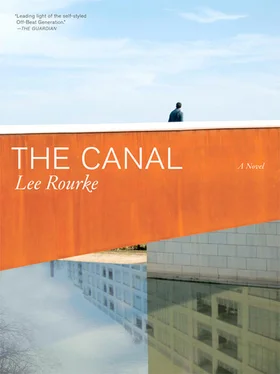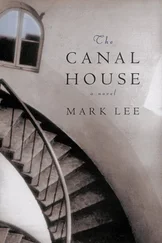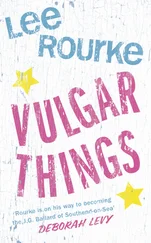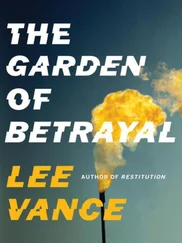“Have you seen him?”
“Who?”
“The swan … There?”
“How do you know it’s a he?”
“He’s big. It’s got to be a he.”
“Well, he … she … whatever … is beautiful. Truly, truly beautiful.”
We didn’t need to say anything else. The late afternoon sun was beginning to settle. I was aware that it was probably time to go, no matter how much I wanted to stay. I wondered who came here at night. There must have been those that did? The owners of the barges lived on the other side of the canal to the right of the whitewashed office block, beyond the iron bridge. They lived private lives in a secluded enclave of lone barge owners with their own rules and etiquette. They were probably happy. I wondered if she was happy. She didn’t look happy. I wondered where she went at night, whom she slept next to, whom she trusted. Did she feel safe? Did the world smother her? I wanted to know.
It seems that boredom is not really that removed from desire. It seems that they are, in fact, the same urge more or less: the urge to do something. It seems that the same common denominator underpins them: existence. And existence is essentially prolonged boredom. Desire is boredom. These urges remain with us even when the body begins to deteriorate. When the body is past its best these urges still seem to remain. They remain until the last breath. We are driven by urges we can’t really explain. None of it can be explained. This, it seems to me at least, is the sheer beauty of boredom, and, more importantly, existence: It is all-powerful, more powerful than anything we can imagine.
I can’t remember who got up from the bench first, but it was probably me. We didn’t say goodbye to each other. I don’t even think we looked at each other. We seemed to go, to move away from the bench, the canal, each other. I didn’t like the idea of being on the canal at night. I had a sudden, horrible foreboding that something sinister could happen — and if it was going to happen, then it would probably happen there, when the light starts to fade, by the banks of the canal, as night began to emerge. I remember walking away, through Shepherdess Walk and up through the estate. The streets seemed to be deserted, just the orange hue of the street lamps hanging over my shoulders to guide me. I looked back — I was positive it was her, walking along behind me. It seemed odd, as she usually headed up the canal towpath towards Hackney; she never ventured into the estate. I immediately turned left onto Arlington Street and stopped. I waited for her. I could hear her footfalls as she approached. I stood out of sight, leaning against a gate to a maisonette, waiting for her to pass on the other side of the road. She didn’t see me. It was definitely her. She stopped to cross the road, looking both ways. I waited until she did and then began to follow her. After a minute or so of following her I realised that she must have known I was following her. It was obvious to me that she could sense my presence. As she got to the corner of Prebend Street she was approached by a group of teenagers. I stopped. It was the same bunch from earlier that day, I’m positive; the same group that had gathered around me on the bench. Even though their hoods were up I knew it was them. It looked like they were asking her for a light. I watched as she threw up her arms, indicating to the gang that she didn’t have the means to light whatever it was they wanted lighting. I hung back. I didn’t want them to see me. That was the last thing I wanted. She began to walk away from them. They started laughing; one of them shouted something to her which caused the rest to fall about laughing even more. I was sure it was the lad with the red hair, but, again, it was hard to distinguish each of them from one another due to their dark clothes and hoods — due to them acting as one homogenous teenage mass. Then they turned and began to walk towards me. I turned on my heels and headed across the estate towards St Peter’s Street and up towards Essex Road. It was a bit out of my way and not the route I necessarily wanted to take but I didn’t want them to see me — surely things would have gotten nasty. They would’ve recognised me, and under the cover of the darkening streets I would have been at their mercy.
It was raining. I momentarily considered not walking to the canal, to my bench, to her. But I did. I couldn’t resist. I had been sitting on my unmade bed all morning, staring out of my window, looking at the multitudinous rooftops of Hackney. I watched the pigeons mostly, as they went about their business only to be distracted by the civil aircraft coasting along up above them. My room sat directly underneath the flight path to Heathrow Airport. I watched the planes pass by my window, up above, in the rain. The grey cloud was a perfect backdrop. A plane seemed to pass by every two minutes or something. I counted something like fifteen Airbus A350-800s and about five or six Airbus A310s. The planes that crashed into both towers in New York were Boeing 767 200 series, wide-body, aircraft. They were big planes. I’m pretty sure none of the Airbus A350-800s were, in fact, Boeing 767s.
It was a Dan Air Boeing 727. It felt old and out of date even then. I was about seven years of age. It was a small, cramped aircraft, and I distinctly remember liking the food we were provided with. I can’t remember what it was we ate. I especially liked the turbulence as we started our descent and the view from my small window. It was a night flight and everything was lit up below — even when we crossed the sea it was easy to spot the faint light from the lone ships 30,000 feet below. As a surprise my father had arranged a quick visit into the cockpit for me. I was elated. When the stewardess eventually ushered me in I was amazed to find the pilot and co-pilot casually chatting to each other like they were in the pub, or waiting at the bus stop or something. I remember thinking that I had been transported into the future. I remember thinking that everything below us, as I looked out of the cockpit’s windows, was magical, transformed, beyond my ordinary imagination. When the pilot allowed me to sit in his chair, seeing the entire world below me, I remember something seeping into me that I had never felt before: importance. I felt powerful. I felt like I could control the world.
I arrived at the bench around ten a.m. The rain had abated a little. An old man was sitting on it. He was positioned dead centre and I hesitated momentarily, uncertain about which side to sit upon. I eventually opted for his left, hoping that he would shuffle up along the bench to my right. He didn’t. Our legs were almost touching and I felt extremely uncomfortable. He seemed quite content with my intrusion; he was humming a tune I didn’t recognise. He seemed to be humming the same part of the tune over and over again. It sounded classical; maybe Beethoven’s Ninth, but I wasn’t too sure. Two bags rested on the damp earth by his feet. I noticed that a soggy cigarette end was stuck to his shoe. He had a huge pot belly that hung over almost to his knees. It reminded me of my own grandfather’s when he was alive. It looked rock hard, solid. His face was weathered and wrinkled like folded pasta on a plate. It didn’t take me long to notice that he was missing an arm. His right arm, above the elbow. He stopped humming his tune, and, of course, it didn’t take that long for him to strike up a conversation with me.
“Of course, I’ve travelled the world, you know. I left home at fifteen to visit China.”
“Really?”
“How time has passed me by. Just another sixty years would suit me.”
“Where else have you travelled to?”
“Russia. I liked Russia. Always friendly to me, the Russians. This myth that they never smile on public transport. Hogwash. Always happy to see me, the Russians.”
Читать дальше












